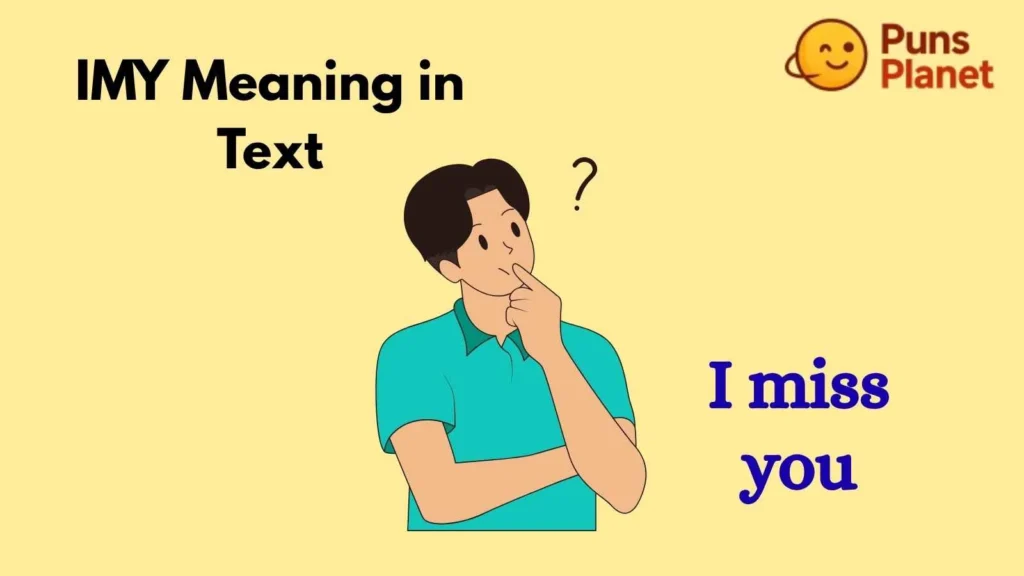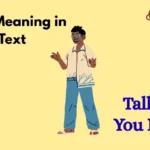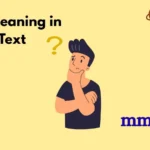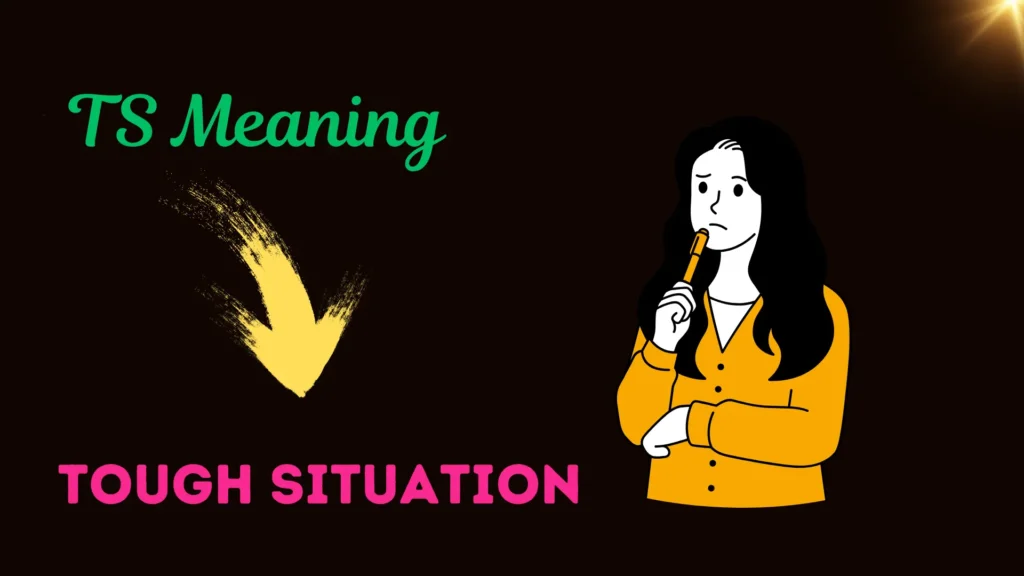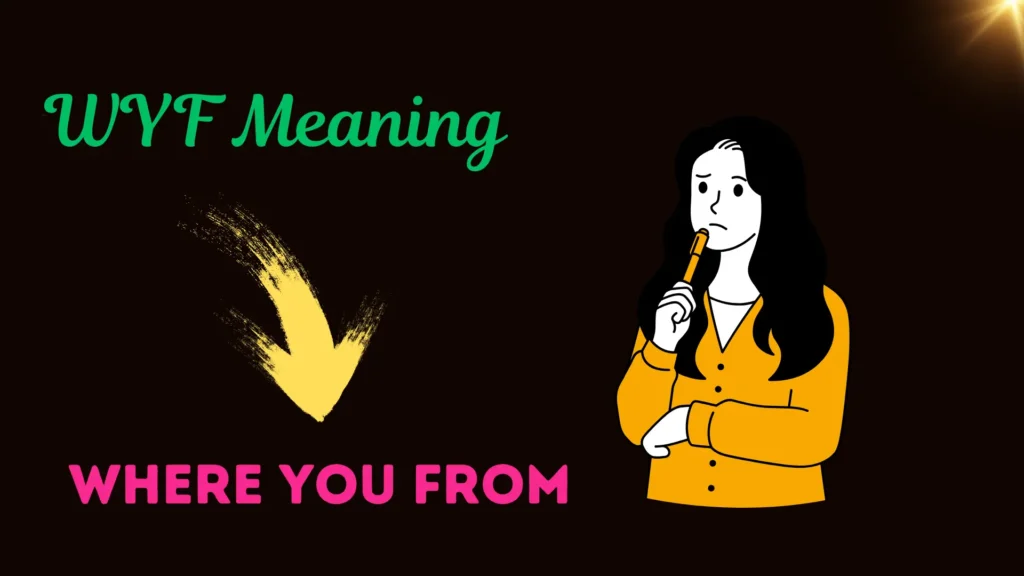Ever received a message with just three letters—**IMY**—and wondered what it means? You’re not alone.
In the age of texting and social media, acronyms like IMY have become shorthand for feelings that are hard to express in limited characters.
In this article, you’ll discover the real meaning of IMY, when you should use it (and when you shouldn’t), plus examples that feel natural and genuine.
Definition: What IMY Actually Means
The acronym IMY stands for **“I miss you.”** It’s a shorthand phrase commonly used in texting, instant messaging, and social media to communicate longing or affection quickly and casually. It’s one of the most popular acronyms in online chat culture.
Because texting often lacks tone and facial cues, IMY conveys emotional weight in just three letters—it’s a quick way to tell someone you’re thinking about them.
Origin & History of IMY
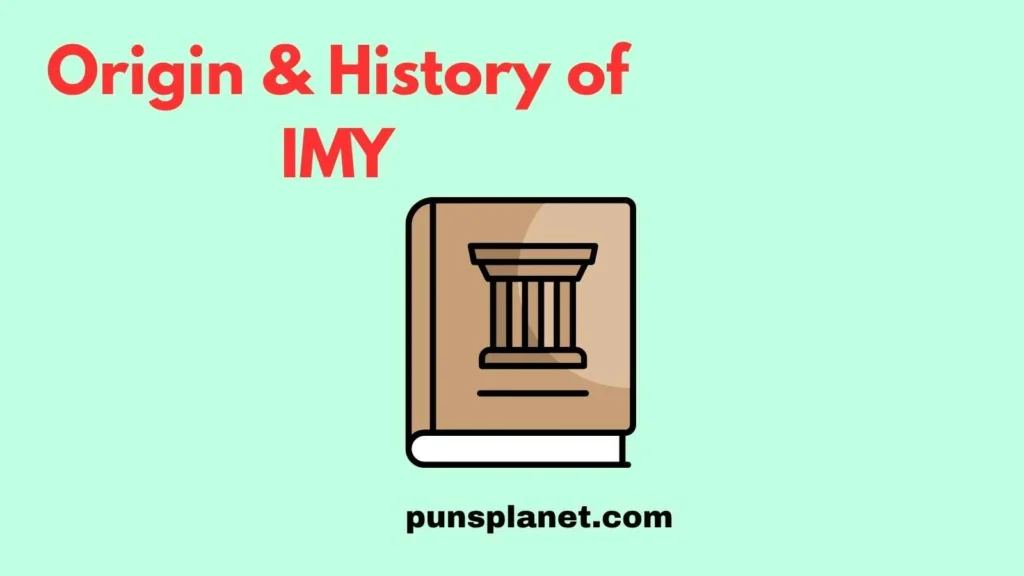
Where did “IMY” come from? While no single inventor can be credited, IMY emerged organically in the era of early SMS and chat apps like AOL Instant Messenger, MSN, and early mobile phone texting. Users wanted quick ways to express emotion without typing full sentences.
Over time, as smartphones and messaging apps (WhatsApp, Facebook Messenger, Snapchat, etc.) grew in popularity, IMY became a staple shorthand—especially among younger users. Today, it’s widely recognized across age groups and cultures.
Variations & Related Acronyms
Just like IMY, there are lots of related acronyms. Here are a few:
- ILY
- IMYS – I miss you so much
- IMU – I miss you too
- HBU – How about you?
- WYD – What you doing?
Sometimes people combine them: “ILY IMY” might show they both love and miss you.
When & How to Use IMY
Using IMY appropriately depends on your relationship with the person and the tone you’re aiming for. Below are suggestions for context and tone.
✔️ Suitable Situations
- When texting a friend you haven’t spoken to for a while.
- To express affection in a romantic or close friendship context.
- When you want to share emotion quickly without typing a full sentence.
❌ Situations to Avoid
- Professional or formal communication.
- First-time texting someone you don’t know well.
- Contexts where emotional expression might be misinterpreted.
Tone & Context: Formal vs Informal
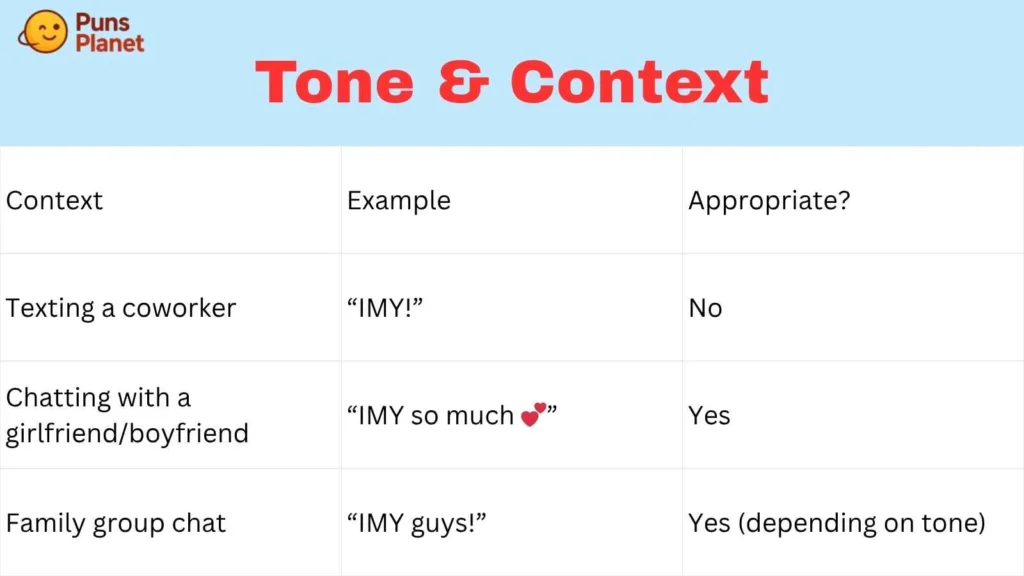
Because IMY is inherently informal, it’s best suited for casual conversations. Sending “IMY” to your boss or a client may feel unprofessional or out of place. On the other hand, using it to a close friend or partner can feel warm and immediate.
Think of it this way:
| Context | Example | Appropriate? |
|---|---|---|
| Texting a coworker | “IMY!” | No |
| Chatting with a girlfriend/boyfriend | “IMY so much 💕” | Yes |
| Family group chat | “IMY guys!” | Yes (depending on tone) |
Usage Across Platforms
IMY shows up in different ways across social media and messaging tools:
- WhatsApp & SMS: Simple as a single message—“IMY”.
- Instagram Direct Messages (DMs): Often paired with emojis like ❤️ or 😢 (“IMY ❤️”).
- Snapchat: Usually ephemeral and casual (“IMY rn”).
- Twitter / X: Used in replies or threads, especially when brevity matters.
- Chat Apps (Telegram, Messenger): Similar to SMS; may include sticker or reaction tags.
Adding Emojis or Emphasis
You can make IMY more expressive by adding emojis or punctuation. For example:
- “IMY ❤️”
- “IMY soooo much 😢”
- “IMY!! 😘”
Cultural Nuances & Global Meaning
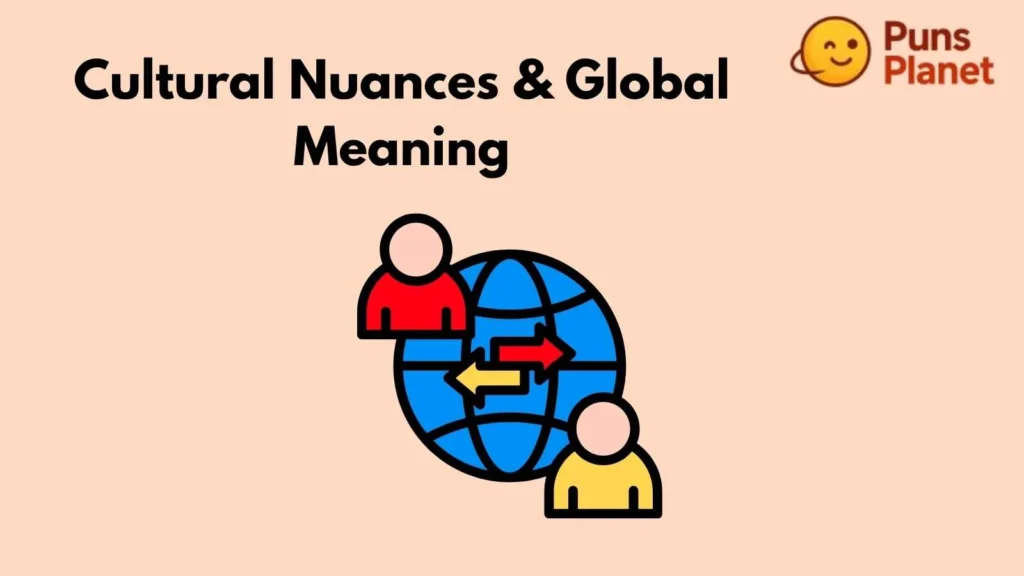
While IMY is widely understood in English-speaking cultures, interpretation can vary worldwide:
- In non-native English communities it might be used loosely or with transliteration.
- In multilingual families or texting groups, you may mix IMY with words from another language (e.g. “IMY, yaar!”).
- Some generations may see “IMY” as casual; others may prefer full phrases like “I miss you.”
Keep in mind that tone, relationship, and local norms influence how IMY is received. What feels sweet to one person may feel flat to another.
Common Mistakes & How to Avoid Misunderstandings
Even acronyms meant to express affection can backfire if used incorrectly. Here are some pitfalls and how to steer clear:
- Overusing IMY can make it feel insincere. Try balancing acronym use with full messaging.
- Using IMY with someone who doesn’t know the shorthand might lead to confusion.
- Ignoring context triggers—for instance, sending IMY after an argument might seem insincere.
- Lack of follow-up: If you say “IMY,” consider adding a sentence: “IMY. Hope to see you soon.”
Why Do People Use IMY?
You might wonder, why can’t people just write “I miss you”? The truth is there are several benefits:
- Speed: It’s faster than typing full words.
- Brevity: Keeps messages short and to the point.
- Emotional impact: Acronyms like IMY can feel more immediate and genuine.
- Code of affection: For people who speak in acronyms, it becomes part of digital intimacy.
- Trendiness: Slang feels modern—plus, it shows you know digital culture.
Real Examples & Conversation Samples
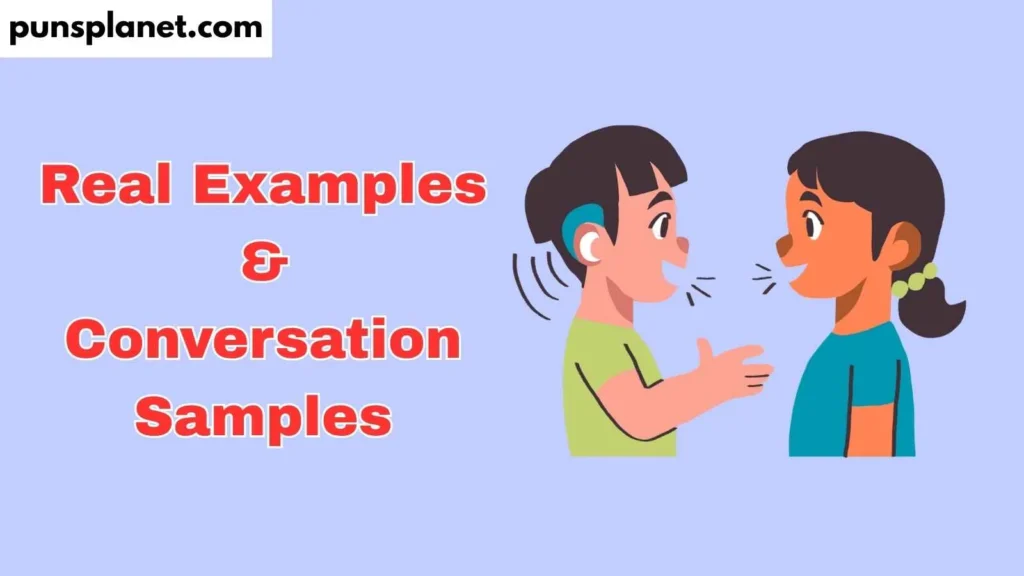
Here are real-style conversation snippets showing how **IMY** might be used naturally:
Friends catching up after a long time:
Alex: Hey! Long time no chat…
Tara: Yeah, IMY — how have you been? 😊
Long-distance relationship:
Sam: I wish you were here.
Riya: IMY so much 😢 Can’t wait to see you.
Family group chat:
Sister: Just calling to say hi!
Brother: IMY guys — let’s plan dinner soon.
These samples show how IMY works best when it’s sincere and not over-engineered. The context and follow-up matter.
FAQs
1. Can I use IMY with someone I just met?
Probably not. IMY feels intimate and personal. For someone you’ve just met, it may come off as too emotionally loaded. Stick to lighter greetings first.
2. Is it okay to use IMY in work chats or professional messages?
No — use full wording in professional settings. Replace “IMY” with “I miss you” only if it’s appropriate and not part of formal or career-oriented communication.
3. What’s the difference between IMY and IMYS?
IMY means “I miss you.” IMYS stands for “I miss you so much.” It’s simply a stronger or more emotional variation.
4. How can I respond to someone who texts IMY?
You could reply with:
- “Aww, I miss you too 💖”
- “I’ve been thinking about you as well.”
- “Can’t wait to catch up soon.”
5. Is IMY universal across different languages?
While IMY is widely recognized in English-speaking and many online communities, it might not carry the same weight everywhere. Always consider the language, culture, and your relationship with the person.
Final Thoughts:
In digital communication, IMY has become a powerful little acronym with big emotional impact. It’s more than just letters—it’s a quick way to say you care, you miss someone, and you want to connect ❤️.
Used at the right time and with the right tone, IMY can bring warmth and meaning to a message.
It’s short, sweet, and modern. But like any tool of expression, its strength lies in sincerity and context.

